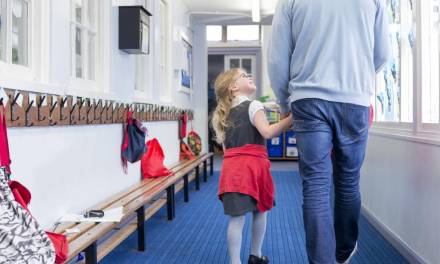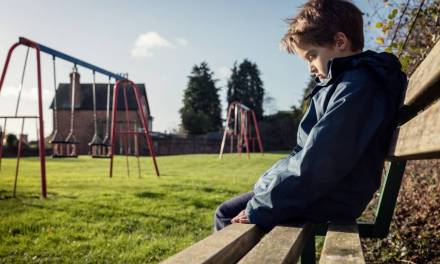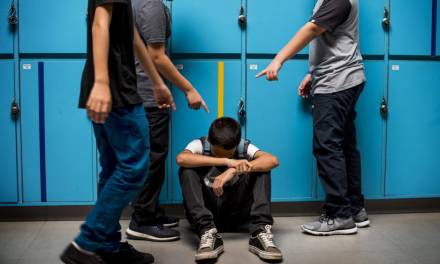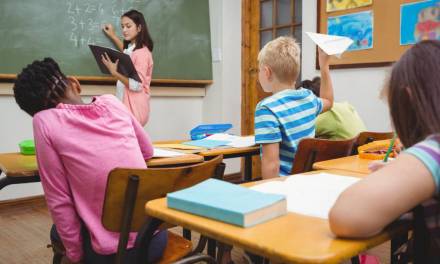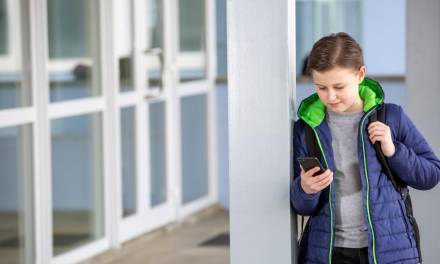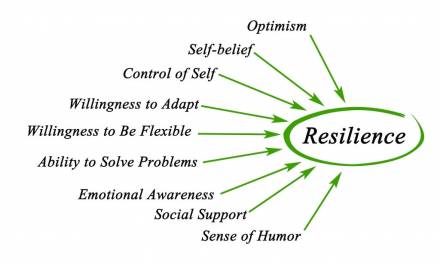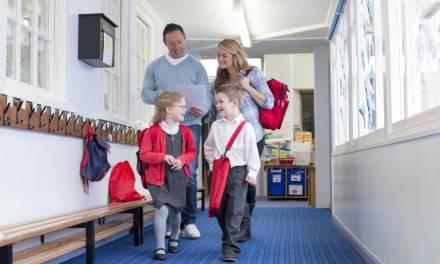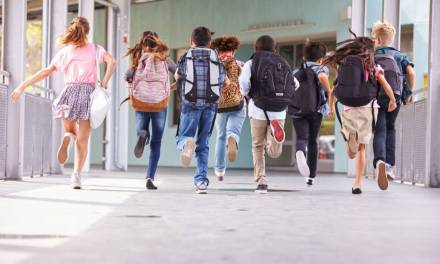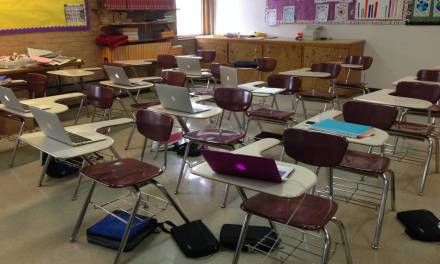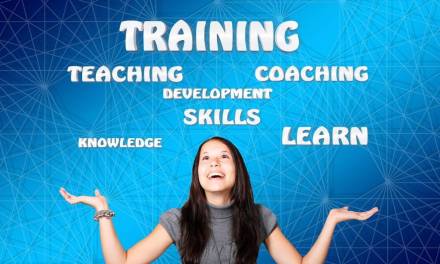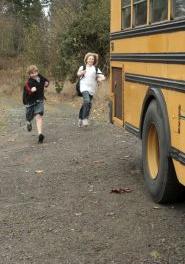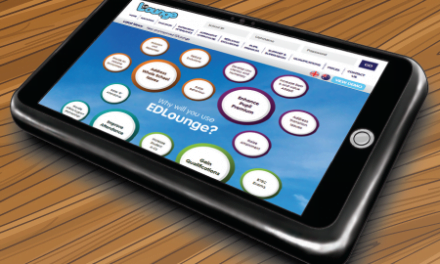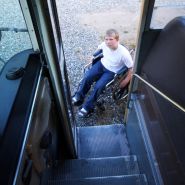
Behaviour
RECOMMENDED
Inclusive Strategies with a DfE-accredited provider of online education
Reading time: 3 minutes
The educational landscape has resulted in schools, Multi-Academy Trusts (MATs) and Local Authorities (LAs) struggling to effectively support vulnerable learners, especially those with special educational needs and disabilities (SEND).
Read More5 tips for implementing effective Mental Health Support for Learners
Reading time: 3 minutes
Mental health and well-being are areas which can be tough to discuss. However, we must remove the stigma surrounding it to provide the best possible support for learners. But, what does it indeed look like for learners? How can we ensure that those who struggle with mainstream education receive the same level of support as their peers? Remember, it’s good to always keep guidance in mind:
Read More5 tips for improving student behaviour
Reading time: 3 minutes
School can be a challenging time for many students. However, this doesn’t mean they can exhibit poor behaviour as it can negatively impact their environment and peers. We therefore must instil expectations and guidelines for students to follow, but what if they do not conform to these standards?
To help overcome these challenges, we’ve compiled five tips you can implement in your setting to improve student behaviour and ensure all learners reach their potential.
Read MoreSupporting 5 Root Causes of Challenging Behaviour
Reading time: 3 minutes
Challenging behaviour in teenage school students can disrupt learning environments and hinder academic progress. To address these behaviours effectively, it is crucial to understand their root causes. These behaviours often stem from a complex interplay of psychological, social, and environmental factors. Identifying and addressing these underlying issues can lead to more effective interventions and a supportive educational experience for all students.
Read MoreMeasuring Success: How to Track the Impact of Interventions
Reading time: 2 minutes
Interventions, whether educational, therapeutic, or behavioural, are designed to make a positive difference in someone’s life. But how do we know if they are truly effective? Tracking the impact of interventions is essential for educators, therapists, and anyone working to support individuals in achieving their goals.
Read MoreDe-escalation Strategies: 7 Ways To Diffuse Difficult Situations
Reading time: 3 minutesEffective classroom management is a cornerstone of successful teaching, and...
Read MorePersonalised Interventions for Struggling Students
Reading time: 2 minutes
Navigating mainstream education can be challenging for some children. Factors like learning difficulties, behavioural issues, or social-emotional needs can create barriers to their full participation and academic success. Targeted intervention strategies offer a personalised approach to support these children, helping them thrive within the mainstream setting.
Read MoreChallenging Behaviour & Understanding 5 Root Causes
Reading time: 2 minutes
Safeguarding Policies in Alternative Provision: 3 Things The Best Educators Need to Know
Reading time: 2 minutes
Alternative provision (AP) settings often support young people with complex needs, making safeguarding a paramount consideration. While sharing many similarities with mainstream schools, the unique challenges of AP require a tailored approach.
Read MoreThe Power of Positive Intervention: Discover Confidence and Motivation
Reading time: 2 minutesPositive intervention in schools is a powerful tool for enhancing...
Read More5 reasons why celebrating student success is important
Reading time: 3 minutes
Supporting students to achieve the best possible outcomes in education can present difficulties. However, we must consider a child’s thoughts, and feelings and provide positive behaviour reinforcement whilst celebrating their successes to instil confidence and self-esteem.
Read More3 ways to track student behaviour progress
Reading time: 3 minutes
Students who exhibit poor behaviour can inflict a negative stance on the school environment and overall experience for peers in their cohort. This is why we must ensure students promote positive behaviour during their school journey.
A good way we improve student behaviour is to track and monitor their engagement, celebrate successes and ultimately create a more enjoyable experience for everyone.
Read More5 ways to promote a more inclusive learning environment
Reading time: 3 minutes
School culture needs to be as positive and inclusive as it can be. This can be difficult when there are several factors a school has to handle to ensure management throughout is consistent.
However, there are ways we can integrate a more inclusive learning environment to accommodate SEND students, those with neurodivergent challenges or those who exhibit poor behaviour.
Read More5 reasons student behaviour improves with online learning
Reading time: 3 minutes
Students’ behaviour has arguably worsened since the pandemic and this could be due to a culmination of several factors. Increased stress, disruption in routine and lack of engagement alongside other reasons could be why students do not fulfil their educational potential.
Finding effective solutions to transform the behaviour of students can be difficult. However, online learning could be another flexible option for students. There should always be every effort made to positively reintegrate students when possible.
Read MoreHow to reintegrate students with mental health challenges
Reading time: 3 minutes
Students with mental health challenges can find it difficult to attend a mainstream setting which can diminish their educational potential. Schools can also find it troublesome trying to implement a suitable provision and raise attendance figures.
However, there can be alternatives provided for these children struggling which can allow them to thrive in their education. In this blog, we’ll take a look at some strategies you can implement to help reintegrate your students with mental health challenges.
Read More10 Ways to Reintegrate Students into the Classroom
Reading time: 3 minutes
Supporting a child with mental health or behavioural challenges can be a monumental task in itself. Reintegrating them back into mainstream education is another feat that needs a collaborative approach to implementing the right support possible for children.
Government guidance has highlighted:
Read MorePreventing permanent exclusion with EDClass
Reading time: 2 minutes
EDClass spoke to the SENDCo from St Francis of Assisi Catholic Primary School, Rachel Bowen to discuss the success of the platform. Here is what Rachel had to say.
Read MoreHow to support student challenges into GCSEs
Reading time: 3 minutes
Student behaviour and attendance have seen a recent decline in the past few years, particularly after returning from the pandemic. Year 11 can be a time of turmoil for many students during their most important year in secondary school, but what if we could implement early intervention strategies to combat these challenges?
Read More5 ways to overcome behaviour barriers and reintegrate students
Reading time: 3 minutes
Student behaviour can fluctuate through their educational journey, so we must implement transformative strategies to overcome barriers that may be hindering their progress.
What can we do to help overcome certain behavioural challenges? In this blog, we’ll take a look at five ways you can overcome behaviour barriers currently presenting problems in your school. Firstly, the school inspection handbook states:
Read MoreChristmas: Keeping student behaviour positive when they return to school
Reading time: 2 minutesFollowing the Christmas period students can return to school with a renewed...
Read More10 Ways to Improve Student Behaviour in the Classroom
Reading time: 3 minutesImproving student behaviour in the classroom is crucial to fostering an...
Read More5 reasons why online learning helps with students at risk of exclusion in off-site direction
Reading time: 3 minutes
Exclusion can be potentially detrimental to a child’s education and their future prospects. There could be several reasons why a student may be at risk of exclusion which can subsequently impact their mental health, attendance and attainment levels.
A conscious effort needs to be made to provide positive behaviour reinforcement for these students so they can understand how to behave appropriately. Also, steps towards a successful reintegration should always be aimed for. Could this be through the use of an online learning and hybrid approach model? Here are 5 reasons why online learning can help students at risk of exclusion in an off-site direction.
Read More5 benefits of online learning for off-site direction
Reading time: 3 minutes
The education sector is evolving and adapting to accommodate the specific needs of students. These students with medical, behavioural or mental health challenges need a solution that can allow them to thrive and reach their education potential.
Off-site direction is used to support students with primarily behavioural challenges that are hindering their academic progress and personal development. Could an online or hybrid approach be more suited to these types of learners so they can focus their attention on their education?
Read MoreHow to engage students, parents and teachers
Reading time: 5 minutes
The education sector has recently had to manage the relationships between parents, students and teachers and find solutions that suit all involved. Broken-down relationships and irreparable trust have resulted in children having poorer educational experiences and outcomes. How can we support them, their behaviour, their attendance and their educational journeys?
EDClass spoke to Sarah Johnson, Director of Phoenix Education Consultancy and President of PRUsAP to discuss strategies we can implement to improve solutions. Sarah creates content and resources for children and teachers and works on school improvement and student support in terms of emotionally based school avoidance, anxiety and other medical needs. She has also written several books including – ‘Behaving Together in the Classroom A Teacher’s Guide to Nurturing Behaviour’.
Read MoreStudent behaviour and the link to hard news stories
Reading time: 3 minutes
Students misbehaving can be the result of a variety of different factors. We must drill to the core root of why a student is behaving like this and find a solution that suits all involved.
Trauma, mental health challenges, learning difficulties, the list goes on as to why a student may display disruptive behaviour. However, more prevalent issues could be why students misbehave and potentially lead to suspensions and exclusions. Examples could include the recent news of the Israeli-Palestinian conflict or the Russo-Ukrainian war.
Read MoreChildren’s well-being: How to overcome barriers
Reading time: 4 minutesA child’s personal and emotional development are crucial focal points in...
Read MoreHow to support absenteeism through online learning
Reading time: 3 minutes
Absent students may always present the education sector with a problem that will be difficult to solve, but we must do everything in our power to overcome certain barriers. Could one option be online learning? EDClass contacted the Department for Education to discuss absence rates and why we must keep up the momentum to improve standards.
Read MoreAnxiety: How to support students who struggle to attend
Reading time: 4 minutes
Anxiety is a normal and often healthy emotion. However, when anxiety is excessive and interferes with daily life, it can become a problem. This is especially true for students, who are often under a lot of pressure to succeed.
Anxiety amongst other mental health challenges has resulted in heightened absenteeism. The BBC News recently reported:
Read MoreOnline alternative provision the future of supporting students with behavioural challenges
Reading time: 3 minutes
Online alternative provision (OAP) is a growing trend in education, with many schools and local authorities now offering OAP programs to support students with behavioural problems.
Traditionally schools may resort to isolating students with limited educational resources and support staff resulting in poor progression or personal development. Schools also may have to exclude or suspend students which can be costly and cause additional workload to an already strained workforce.
Read MoreHow impactful an online alternative provision can be for local authorities
Reading time: 5 minutes
Local authorities play an important role in supplying effective education for children, but the right support must be supplied, at the right place, and at the right time. EDClass spoke to Councillor Maroof Raouf, Deputy Chair of the Education, Children and Families Policy Committee at Sheffield City Council and he stated:
“A blended learning approach is something we aware of and we are looking at the growing options available to schools. It’s just ensuring that students are being put in an environment that is conducive to learning.”
5 Strategies for creating a safe and supportive online learning environment for LGBTQ+ students
Reading time: 3 minutes
In the world of online learning, creating a safe and supportive environment is crucial for fostering inclusivity and promoting the success of all students.
Although safeguarding must be a core component of all online learning platforms, it’s essential to acknowledge the unique experiences and challenges faced by LGBTQ+ students in the virtual classroom. By implementing specific strategies, educators can ensure that their online learning spaces are respectful, understanding, and welcoming for everyone.
Read MoreAlternative Provision: the current landscape
Reading time: 4 minutes
Alternative Provision (AP) is a type of education that is delivered to students outside of a traditional school setting. It plays a crucial role in the UK education system, providing support and tailored learning opportunities for students who may struggle to thrive in mainstream schools, who have been excluded from school, or who are unable to attend school for other reasons.
There are many benefits to Alternative Provision for both schools and learners. For schools, it can provide a cost-effective way to provide education to pupils who would otherwise be excluded from mainstream education. It can also help to reduce the number of pupils who are permanently excluded from school, which can have a negative impact on their future prospects.
Read MoreWhy it is important to celebrate Pride Month in schools
Reading time: 3 minutes
As we celebrate Pride Month in June, we take a closer look at the importance of embracing the movement within school environments and how teachers, school leaders and parents can actively support and advocate for equality and inclusivity.
In today’s diverse and evolving society, it is essential that schools work hard to create an inclusive environment for all students. By recognising and embracing the LGBTQ+ community within schools, it is possible to create an atmosphere of acceptance, respect and understanding, which will all have an excellent impact on the wellbeing and academic success of students.
Read More3 Tips when supporting transgender students in school
Reading time: 3 minutes
In 2023, more young people are exploring their sexual identity than ever before. In this blog, we explore three ways in which school staff can best support transgender students and create an environment in which they feel safe, and respected and will thrive both personally and academically.
Read More3 ways teachers can motivate students with behavioural problems
Reading time: 3 minutes
Students who regularly display unacceptable behaviour will not only negatively affect their own learning but will also hinder the learning of others. Below we look at three suggestions in which students with behavioural problems can be motivated to stay ‘on-task’.
Routines
Pupils who display unacceptable behaviour have often experienced a number of Adverse Childhood Experiences and, what these children need more than anything else from their school is a routine. This includes whole school routines and systems but, just as importantly, it includes what the classroom teacher can do each and every lesson.
Read More3 ways you can support students at risk of exclusion
Reading time: 3 minutes
Exclusion is used as a last resort for very challenging situations, however, it has a massive impact on the student that can last for their entire lives. Seeking other ways to address the behavioural challenges that lead to exclusion is always the priority, but sometimes that is not enough.
If a student is on the path to exclusion, we must give them the support they need to try and resolve the issue and find a different approach.
Read MoreThree tips to support students with behaviour problems
Reading time: 4 minutes
Educational institutions aim to deliver quality and proper education to all students irrespective of other factors. However, there are several hindrances to the delivery of education to students. Most of the factors are external. However, one of the significant factors that hinder the delivery of education is the behaviour of learners. It means that the learners’ behaviour affects learning. The student’s behaviour, when severe, damages both their own and other students’ learning processes. The behaviour of students toward education affects their environment and hinders their learning.
Read More5 Strategies to Reduce Exclusion
Reading time: 3 minutes
It is possible that protecting children from being expelled from school might safeguard them in several ways. A substantial body of data suggests that children barred from attending school are more likely to have negative life experiences.
Greater educational achievements and more chances for the future may be achieved by providing children with the resources they need to remain in school. This also helps to guarantee that children are kept in a secure setting. Concerns relating to a larger scale of disproportionality within the criminal justice system are equally pertinent to school exclusion.
Read MoreUnderstanding learners with behavioural needs
Reading time: 3 minutes
Schools are centres of learning. What a student learns at school, remains with them throughout their lifetime. Schools, like home, are places that have a powerful impact on every person, ultimately shaping their actions and thoughts for life.
They become even more special for children with behavioural problems. The school’s environment and atmosphere shape students’ behaviour, shaping it for better or worse. To teach effectively and deliver personalised learning, every teacher needs to understand each student’s behaviour.
What is behaviour?
Behaviour can be defined as the way a person acts or carries themselves, particularly towards others. It takes place frequently as a reaction to a certain circumstance or event or situations. Behaviour defers from person to person as each person behaves in a certain way when faced with any event or circumstance.
Read More5 behaviour management strategies to help classroom management
Reading time: 3 minutes
As teachers, we release that we cannot have direct supervision over every single student when delivering a lesson resulting in lapses in concentration for some. This is why it is crucial that students are aware of what is expected in terms of good behaviour within the school. Here, we discuss our top 5 strategies to help with behaviour management in the classroom.
1. Know the school behaviour policy inside out
Our first tip is to ensure you are fully aware of the whole-school behaviour management policy. These vary widely from school to school, so it is essential that you know the wording of the policy, whether it be a “C1” or a “first warning”, and what this means for pupils. This is imperative for two reasons – firstly, to ensure that you are applying it fairly and correctly, and secondly, to remove any discussion or protests from the child.
Read MoreExclusions: what can be done to help?
Reading time: 3 minutes
Exclusions can lead to several ramifications for both pupils and schools. What alternatives or solutions can be offered to help support them?
Schools have recently adopted a zero-stance policy on certain behaviours resulting in students becoming isolated from their peers. Some of the main reasons why students become excluded include:
– Violence or aggressive behaviour
– Bullying
– Verbal abuse
– Physical abuse
– Drugs
– Criminal activity
– Defiance and disobedience
Truancy rates in schools – can EdTech assist?
Reading time: 3 minutes
Truancy rates and absenteeism are being scrutinised by the government following a new bill. Are schools ready for this, can they be supported and can EdTech assist?
Following the Queen’s speech, England’s schools will now be required to publish an attendance policy for their students aiming to crack down on absenteeism. Education Secretary Nadhim Zahawi outlined his ambitions to improve schools:
Read More3 tips on improving student behaviour
Reading time: 3 minutes
Student behaviour can be difficult to control at times especially around exam season due to a decrease in attentiveness and focus to several factors. Here are three tips that can help get students back on track.
Several ideas can have a positive impact on student behaviour, but these tips can help schools in the long-term with their relationship with their students.
1. Engage with your students with a positive reinforcement mindset
Read MoreHow to reduce bullying in education
Reading time: 4 minutes
Bullying is, unfortunately, a prevalent issue within education. How can it be reduced and how can EdTech assist and improve particular students’ experiences?
Read MoreThe impact of exclusions: why alternative provision can help
Reading time: 3 minutes
Exclusions can be damaging to a school’s budget and reputation so it needs to be used as a last resort. Alternative provision can play a vital role in helping.
Read MoreChildren missing education: why they need protecting
Reading time: 3 minutes
Children missing education can cause a mass of problems for schools. Schools must do their best to ensure their students’ safety and increase their chances of reintegrating.
Read MoreHow to ensure children are safe on Bonfire Night
Reading time: 2 minutes
Bonfire night can be great fun but also poses dangers to children – especially in ‘lockdown England‘ where home-based bonfires and firework displays are likely to become the norm.
According to the Child Accident Prevention Trust, more than 550 children under 16 are taken to A&E in the weeks surrounding Bonfire Night.
How do you ensure children stay safe around fireworks? This blog post explains.
Read MoreSchool attendance figures continue to fall
Reading time: 2 minutes
School attendance around the UK has continued to fall as the coronavirus pandemic takes a toll on education.
The Education Policy Institute said that rising infection rates had created challenges for schools since they reopened, with hundreds of pupils and staff being sent home following outbreaks of the virus.
The rates are regionalised around the UK. Which areas have the highest rates of absence? This blog post explained.
Read MoreWhat is your current attendance?
Reading time: 2 minutes
What is your current attendance?
There has been a rise in the number of schools whose attendance rate has been affected by coronavirus.
The latest figures show pupils isolating in 46% of secondary schools and 16% of primary schools.
Overall attendance has worsened from 90% to 89%. What are your attendance figures? Let us know in the comments below.
Read MoreCovid-19: Have you had any children reluctant to return?
Reading time: 4 minutes
EDBlog reported last month that there has been a significant decline in pupil attendance – amid fears there are children reluctant to return.
A report issued this week by Ofsted showed the effect of the pandemic on schools around the UK. Parent and pupil anxiety is said to have led to increased absence of pupils, while parents opting to home-school their students permanently had also increased.
What can be done if you have children reluctant to return? This blog post explains.
Read MoreNumber of schools not fully open quadruples in a week
Reading time: 2 minutes
The number of schools not fully open due to Covid-19 incidents has quadrupled in a week according to official figures.
The leader of the National Association of Head Teachers has said that the attendance figures should “ring alarm bells” for the Government.
Last week warnings were made that schools would “grind to a halt” unless testing improves. This blog post explains the latest.
Read More1 in 20 pupils absent from the classroom
Reading time: 6 minutes
There are 400,000 pupils absent from the classroom due to issues associated with the pandemic and lockdown.
The Children’s Commissioner said that pupils sent home due to a Covid-19 was relatively small but many children with special needs or emotional problems had yet to return.
The figures continue a worrying trend set by schools in Scotland, where 12% of pupils were absent on one day last month.
What can be done to increase the number of children receiving an education? This blog post explains.
Read MoreClass and Year bubbles
Reading time: 2 minutes
Class and year bubbles are the new norm for schools this autumn.
Unlike the general public who are limited to 6 people, schools can have larger groups though are expected to keep these to a minimum.
This blog post provides top tips for doing this along with the latest bubble guidance.
Read MorePoor student attendance
Reading time: 2 minutes
More than 100,000 students were absent from school in Scotland on one day at the end of August, according to Government figures (12%).
Health anxieties amongst parents and pupils means that many pupils are reluctant to return to the classroom.
The Government has said that it will fine families who do not attend. But how will this work and do you have a contingency plan in place? This blog post tells you all you need to know.
Read MoreTeachers’ safety when rotating and students remain inside a fixed classroom
Reading time: 4 minutes
The Government guidance on school reopening states: “The overarching principle to apply is reducing the number of contacts between children and staff. This can be achieved through keeping groups separate (in ‘bubbles’) and through maintaining the distance between individuals.”
The reason for this is to keep teachers and pupils safe by minimising the number of people they come into contact with.
This blog post explains teachers safety when rotating and students remain inside a fixed classroom.
Read MoreDealing with a new form of low level disruptive and poor behaviour
Reading time: 3 minutes
Low level disruptive and poor behaviour affects pupil learning and damages students’ life chances.
And it could be worse this autumn.
Ofsted previously said that pupils could lose up to an hour of learning each day due to disruptive behaviour. But what will this mean for education’s “new normal“? This blog post explains.
Read MoreThreatening and negative behaviour, resulting in isolation, fixed term exclusion or possible permanent exclusion
Reading time: 2 minutes
Covid-19 is threatening and negative behaviour, resulting in isolation, fixed term exclusion or possible permanent exclusion could follow as a result.
That is the view of the Department for Education which stated last week: “It is likely that adverse experiences or lack of regular attendance and classroom discipline may contribute to disengagement with education upon return to school, resulting in increased incidence of poor behaviour.”
Low level disruptive behaviour which could occur could include refusal to wear a mask, increased bullying and threatening staff and pupils. This blog post takes a look at the issues, the consequences and how they can be avoided.
Read MoreBehaviour management: the art of using a behaviour tracker
Reading time: 2 minutes
“Behaviour management is a subject that causes a lot of heat, and sometimes a lot less light”. That is the view of Ofsted’s Amanda Spielman, who made improving behaviour in schools one of her greatest priorities when she took over in office.
Monitoring behaviour can be the first step to eradicating bad behaviour from your classroom. Providing pupils with feedback backed up with results you can evidence is more likely to trigger a reaction from your students.
This is where a behaviour tracker comes in. But what is one and how can it help in your school? This blog post explains.
Read MoreRaising standards of behaviour: an EDClass guide
Reading time: < 1 minute
Raising standards of behaviour remains a significant challenge for many schools.
Many actions can be taken in order for schools to improve. No matter how skilled the teacher, intervention at a policy level from a senior leader can have far greater an impact than a classroom teacher can.
How can your school create a culture to raise standards of behaviour? This blog post explains.
Read MoreHow does the return to school affect families still shielding?
Reading time: 3 minutes
Pupils in the UK should return to schools full-time in August (in Scotland) and September (in England) – even if they have been shielding.
Advice from the Government states that “unless their GP or specialist healthcare provider advises otherwise, any children and young people who live with someone who has been shielding can also return to school.”
But what does this mean for families who are still shielding? This blog post explains.
Read MoreWhy are functional skills important?
Reading time: 3 minutes
Functional skills are important because they provide the skills, knowledge and understanding for young people and adults to progress in work, education and life.
It relates to transferring to learner’s ability to solve problems to real-life contexts. Functional skills are the fundamental English, Maths and ICT skills to aid their working and personal lives. People can study for these qualifications in practical ways.
This blog post explains what functional skills are and why they are important.
Read MoreStudents in inclusion units: are you getting the most out of them?
Reading time: 3 minutes
Are you getting the most out of students in inclusion units?
According to the Department for Education, over half of secondary schools use internal inclusion units.
An inclusion unit is a specific resource which ensures parity of opportunity for all by allowing teachers to teach, students to learn, and those learning with additional needs to be supported. According to the Welsh Government it should not be used as a sin bin, dumping ground or holding cell.
Inclusion units provide schools with an opportunity to address pupils’ individual needs. But are they effective in doing so? This blog post explains.
Read MoreRacist bullying in England hits record high
Reading time: 3 minutes
Racist bullying is endemic in our schools in the UK, according to a report on racism in schools released this week.
Analysis of Government figures by campaigners Hope Not Hate – and published in the London Evening Standard – found that English schools suspended or permanently excluded students 4,904 times for racist abuse in 2018-19.
It marks a 13% increase from 4,329 which was record in 2017-18 – and it is the highest number since records began in 2006.
Why is racist bullying so high and what can be done about it? This blog post explains.
Read MoreBehaviour lessons: top tips for improving behaviour
Reading time: 5 minutes
Managing behaviour is a challenge faced by teachers young and old. You are unlikely to hear of a teacher who believes they have complete control of the classroom at all times. But this is where behaviour lessons can help.
Teachers spend a large amount of their time managing behaviour. The end of the academic year is a time where school staff can reflect on the year that has passed and what the new one will bring.
The end of the year is time for reflection on behaviour management techniques as well as the overall quality of lessons. But how can behaviour lessons contribute to improved behaviour? This blog post explains.
Read MoreSchools to reopen in Scotland
Reading time: 2 minutes
Nicola Sturgeon is expected to confirm today schools to reopen from August in Scotland.
UK schools closed to almost all pupils on 20 March. In England, schools have reopened for key year groups with a full return intended for September.
Read MoreHow adult learning helps students achieve their potential
Reading time: 3 minutes
Adult learning refers to education, courses and training that is designed for adults. It can also be defined as the provision of instructed learning events for adults who usually act or who have acted in working life.
Adult education may be arranged with specific individuals in mind. Alternatively, it may be sourced by the adult directly.
This blog post explains the benefits of adult learning and how it can help students achieve their potential.
Read MoreWhat are the risks of permanent exclusion?
Reading time: 4 minutes
The risks of permanent exclusion are far-reaching, as removing a student from the school-setting can have huge ramifications on the school.
But sometimes, the risk to the school and other pupils can far outweigh those risks.
But what is the process of permanent exclusion and what can be done to reduce the risks? This blog post explains.
Read MoreHow to reduce persistent absence – a quick guide
Reading time: 4 minutes
Reducing persistent absence is an objective for almost all attendance officers.
Maintained schools must meet for 380 sessions or 190 days during any school year – and if schools are prevented from reaching this target they must find a way of holding extra sessions.
But what are the requirements for meeting attendance and what can be done to reduce persistent absence? This blog post explains.
Read MoreWhat is the definition of inclusive learning?
Reading time: 3 minutes
The goal of most teachers is to create an inclusive learning in their classrooms that encourage active participation.
But inclusive learning extends far wider than just the classroom.
Inclusive learning provides a welcoming learning environment for all students regardless of their needs. How can you create an environment which adapts to specific needs? This blog post explains.
Read MoreImproving attendance: 5 top tips
Reading time: 4 minutes
By improving attendance you can directly influence improved academic outcomes. Regular class attendance means students are provided with live teaching to both a whole classroom and can also receive tailored feedback.
The Ofsted framework judges schools in four areas: 1) Quality of education 2) Behaviour and attitudes 3) Personal development and 4) Leadership and management. Attendance is included in the Behaviour and attitudes judgement – so it is essential for schools to keep attendance high.
This blog post will explain how attendance is judged by Ofsted and 5 top tips for how attendance can be improved.
Read MoreCommon barriers to learning and how to eradicate them
Reading time: 4 minutes
A student’s ability and performance in education isn’t a simple issue of motivation. Barriers to learning are the barriers which stop students from achieving their goals.
Barriers to learning can be common or may be a one-off associated to individual students.
This blog post takes a look at common barriers to learning and how to overcome barriers to learning.
Read MoreBehavioural repair – a quick guide
Reading time: 7 minutes
There is a wide range of research on the ramifications of poor pupil behaviour and behavioural repair.
Though there may be a common perception that the younger generation is “worse than their predecessors“, due to behaviour repair the opposite is true.
When surveyed, 70-76% of teachers say that behaviour is good or better in their school. How is behavioural repair contributing to this and what can you do to ensure behaviour support in your classroom?
Read MoreSchool catch up: everything you need to know
Reading time: 5 minutes
Schools in England began a phased return to opening at the start of June, with reduced class sizes and social distancing in place.
Since the start of lockdown, schools had remained open to vulnerable children and children of key workers. The rest were asked to learn from home, often without access to a computer, with “no expectations on learning” and it has meant children have fallen 12 months behind.
Here you will find all you need to know about education catch up, the funds available and requirements on learning.
Read MoreMake sure your students are re-engaged
Reading time: 3 minutes
Students have not been engaging with education during lockdown, so schools have a responsibility to make sure students are re-engaged.
The NFER found that a third of pupils are currently engaged with education. 90% of teachers have said that their pupils are doing less than they would normally produce.
The reasons for the lack of engagement are varied. However, schools have a responsibility to provide an education which is engaging for their pupils whether they are inside school or learning from home. This blog post can help.
Read MoreTeaching Your Students Live From Anywhere
Reading time: 3 minutes
Teaching from anywhere has become the new normal during the coronavirus pandemic.
The ability to keep your students learning, even when not together, is fundamental to your school’s offering and your children’s development.
This blog post explains how to utilise digital skills to create a virtual classroom in order to enable teaching from anywhere.
Read MoreAre you caring for vulnerable students?
Reading time: 2 minutes
The Government has continuously said throughout the pandemic that vulnerable students are their priority.
Schools have remained open for vulnerable children and those children whose parents are keyworkers. However many vulnerable children have not attended.
Issues such as digital poverty have arisen, and while schools return to normal the question remains: are you caring for vulnerable students?
Read MoreReport: Most pupils are not returning schoolwork
Reading time: 2 minutes
Only 42% of pupils returned their last piece of schoolwork, according to the National Foundation for Educational Research (NFER).
Most teachers have said that pupils are doing less work than they expect. One in five children have completed no schoolwork during lockdown.
Why should schools be concerned? This blog post investigates.
Read More700,000 children excluded from education
Reading time: 2 minutes
700,000 children do not have a laptop or tablet for home learning – as the coronavirus has widens the attainment gap between pupils.
Children’s commissioner, Anne Longfield, said the outcome of the pandemic on vulnerable pupils creates a ‘a stark risk of them falling behind their peers’.
What has been the impact of Covid-19 on the attainment gap?
Read MoreSchool reopening: priority lists to be implemented
Reading time: 2 minutes
Changes have been made to school reopening, the Government has announced.
Speaking in the House of Commons, the Education Secretary said the adjustments made would provide ‘flexibility’ to schools.
Among the changes, the Government has also said that ‘priority lists‘ will be used to explain to School Leadership Teams (SLTs) who will be offered spaces first.
Read MoreHow to get students caught up as quickly as possible
Reading time: 3 minutes
Schools should plan for students getting caught up as quickly as possible, says the child’s commissioner.
There have been a number of suggestions put forward on how to get students caught up.
But which structure should be used to catch students up on lost education?
Read MoreHow many primary school pupils are attending school?
Reading time: 3 minutes
Primary school pupils in England returned on Monday with social distancing and limited class sizes.
However some councils guarded against reopening – with 90% of schools in some areas remaining closed.
What are the current requirements of pupils returning? What is preventing parents sending their children back? And how can blended learning support pupils?
Read MoreBlended learning could become the new normal
Reading time: 2 minutes
Blended learning is set to become the new normal for education in the UK, according to the leader of teachers’ union.
It is expected that pupils will have to take it in turn using classrooms. In schools, pupils will have to be situated two metres apart. Those outside school will all be expected to participated in remote learning.
But what would blended learning entail and could it become a permanent fixture in education?
Read MoreSchools ‘not planning on running in summer holiday’
Reading time: 3 minutes
The process of school reopening will not mean that children will be forced to spend their summer holidays catching up in the classroom, says the Education Secretary.
Gavin Williamson was speaking at this week’s Education Select Committee meeting on Wednesday where he also discussed the impact of the closures on vulnerable children.
Earlier this month, we reported that Williamson may prefer an earlier lifting of lockdown restrictions due to the impact on the education system. However Williamson refused to be drawn on a date. Earlier today, Shadow Education Secretary, Rebecca Long-Bailey stressed schools should only be open when safe to do so.
Read More5 ways children and parents can stop cyberbullying
Reading time: 3 minutes
There are reports that cyberbullying may be on the rise during the coronavirus pandemic.
According to Sameer Hinduja, professor of criminology and criminal justice at Florida University, “When smartphones and social media became ubiquitous for students, cyberbullying rates went up. This makes sense, of course, because there was now an almost limitless number of potential targets and aggressors.”
But if increased cyberbullying is inevitable, what can parents and children themselves do about it?
Read MoreScotland and Wales discuss phase reopening of schools
Reading time: 5 minutes
Scotland’s Education Secretary and Wales’ Education have lifted the lid on a potential phase opening whereas ministers in England remained tight-lipped.
England’s Education Minister said last week that vulnerable children would be “priority” as part of any plans to reopen schools.
But are we any closer to reopening schools and what does the plan look like?
Read MoreShould children (and parents) be worried about attending school?
Reading time: 7 minutes
School phobia even in pre-Covid times is a very real issue. The causes of which could increase during the Covid-19 pandemic.
Not only this but Covid-19 has increased apprehension in the education setting. Children of key workers as well as vulnerable children are still expected to attend. But in reality only 5% of vulnerable children have actually been attending.
School phobia can be caused by a number of issues. The anxieties of parents, teachers and wider community will also have a substantial effect on parents. How will this all fit together and what is the Education Minister trying to do about it?
Read MoreWhat the Government is doing to help disadvantaged students during lockdown
Reading time: 2 minutes
Disadvantaged students are being offered free laptops and tablets to help with their studies.
This was one of the announcements by Education Secretary, Gavin Williamson in his speech at 10 Downing Street on Sunday.
Schools have been closed since mid-March due to the coronavirus pandemic. Children of key workers and vulnerable students are still required to attend. But should this move have come sooner? And what will it mean for disadvantaged pupils?
Read MoreEnsure your coronavirus provisions are meeting the law
Reading time: 3 minutes
The Education (School Day and School Year)(England) Regulations 1999 place a duty on schools to provide a minimum of 380 sessions (or 190 full days) ‘at a school’.
In these exceptional times, the Education Act 1996 is pertinent: local authorities have a duty to provide suitable education.
This section relates to ‘exceptional provision of education’. This usually relates to pupil illness or exclusion, but as schools close and most students work from home, it has a particular meaning in these coronavirus times.
Read MoreWilliamson speaks at Government daily news conference
Reading time: 3 minutes
Education Secretary Gavin Williamson has fronted today’s UK Government press conference to shed light on the criteria which must be met in order for schools to reopen.
The minister highlighted a five point principle in order for the reopening of schools – which we will detail below.
But what did the Education Secretary say today?
Read MoreWilliamson: milestones promise schools will return to normal
Reading time: 2 minutes
Today is primary school offer day – a key indication that schools plan on soon returning to normal.
Education Secretary, Gavin Williamson, said the offer day is going ahead “because it is important to mark ‘milestones amid the Covid-19 outbreak.”
Earlier this week, EDLounge reported that Williamson would prefer lifting of lockdown restrictions sooner rather than later. But what do his comments today mean for education resuming?
Read MoreWhy now is the best time to learn about climate change
Reading time: 2 minutes
Among many things that have changed in the last month has been the impact the coronavirus and the world economy has had on climate change.
On 1 April it was announced that the COP26 climate summit, set to be attended by world leaders, was to be rescheduled.
But why is this the best time to learn about climate change?
Read MoreThe debate: when will schools reopen?
Reading time: 2 minutes
When will schools reopen? Let us know your thoughts in the comments below.
Schools have now been closed for two full weeks. However there hasn’t been a Government-led approach to education in the interim, with schools largely being left to their own devices to allocate teaching methods.
It has led to some parents struggling to fill the day for their child while others have trouble balancing their own homeworking.
In stems the questions, how long will this period last for and what can be done to help?
Read MoreShould schools continue to open?
Reading time: 2 minutes
Last week, the UK Government opted to close schools but said some schools should remain open so that key workers can continue to go to work.
But some schools are struggling to cope with the demand with many staff at home. Further some staff remain worried about the virus continuing to spread between pupils.
According to the NAHT staff are “understandably anxious about the personal risk of simply going to work”. But should the school situation change to benefit staff and parents of those present?
Read MoreRemoving barriers to learning with online education
Reading time: 2 minutes
As parents come to terms with home teaching, it is worth knowing what support is out there to ensure your children receive the best possible education.
At EDLounge Limited we can help you through the current crisis, with support including live teaching.
EDLounge Limited’s system is accessible for both students who are still required to go into school and pupils who are now at home. The virtual learning platform can feature tailored lessons, with topics set by the teacher to help to ensure consistent learning across the year group.
Read MoreMental Health tips for parents and children
Reading time: 3 minutes
The United Kingdom has outlined new measures to order to tackle the coronavirus pandemic which will affect everyone.
The vast majority of shops will close and police will intervene on gatherings of more than two people. People are only allowed to leave their homes for essential travel to work, food shopping and to exercise once per day.
Many people are now fearing the effect of a lockdown on their mental health?
Read MoreHow to continue to educate your child at home
Reading time: 3 minutes
Today is the first day of school closures in England, after it was announced by the Government last week.
Schools are now only open for children of key workers. Meanwhile, the vast majority of children need to be educated and entertained at home.
But how can parents work from home and provide support for their kids at the same time? And what defines a key worker?
Read MoreUK schools to close on Friday
Reading time: 3 minutes
The Government has announced plans for UK schools to close on Friday. However, some will stay open to protect the most vulnerable pupils.
The move reverses a decision made on 12 March to keep schools open which had attracted some criticism. Scotland and Wales made the decision to close earlier on Wednesday, with England following suit later in the day.
But prompt the decision for UK schools to close, and what does it mean for summer exams?
Read MoreSchool still open if setbacks occur
Reading time: 3 minutes
Governments are announcing plans for school closures around the world. But with online learning, school can contingency plan for closures and ensure safeguarding is achieved.
Yesterday, the UK Government released details for a ‘Coronavirus Bill‘ which will be put before the House of Commons today. There are rumours that more significant measures could come into effect this Friday as a result.
But what could the Coronavirus Bill mean for schools? And how should school contingency plans be informed and support by online learning?
Read MorePupils cannot attend, education continues
Reading time: 3 minutes
Home education could be set to take centre stage in the UK as the coronavirus outbreak continues to affect schools here and around the world.
Today, the UK Government released fresh guidelines so that schools know what to do with pupils who show symptoms of Covid-19.
But what should a school do with the suspected pupils? What happens to the pupil and staff that they come into contact with, and how can home education help?
Read MoreHow are universities being affected by the coronavirus pandemic?
Reading time: 2 minutes
A number of universities are changing their teaching strategies as a result of the coronavirus pandemic.
The UK Government decided on Thursday to keep schools and universities open for the foreseeable future. But this decision has attracted some criticism.
With an increasing number of UK students coming into contact with the virus, universities are taking a number of different measures to ensure their running. But what are these measures and how can online learning help?
Read MoreA genius idea to ensure kids wash their hands
Reading time: 2 minutes
A teacher has come up with a novel way to ensure children wash their hands thoroughly during the coronavirus crisis – and her response has gone viral.
Shauna Woods, 29, a teacher at Hallsville School in Missouri uses a stamp with the inscription, “Ms Woods” to keep her name on books. Now she puts the stamp on the hands of pupils, to ensure hands are washed for long enough for the stamp to be removed.
Have you had a similar idea to encourage pupils to wash their hands thoroughly?
Read MoreWhat we can do for you during the coronavirus crisis
Reading time: 3 minutes
The coronavirus crisis is having an impact all around the world. In Canada, Prime Minister Justin Trudeau is in 14-day isolation after his wife tested positive. Brazilian President Jair Bolsonaro is being tested after an aide tested positive.
The Government response has varied from country to country; varying from complete lockdowns, air travel bans, school closures and the postponements of major sporting events. Yesterday, the UK Government made the decision against widespread school closures, but the move has attracted some criticism.
Read MoreCoronavirus: UK opts to keep schools open
Reading time: 3 minutes
The UK has made the decision for schools to remain open in the face of the Covid-19 coronavirus, despite widespread school closures in other countries affected by the virus.
The decision came as a shock to some, following the Republic of Ireland’s decision to close all schools and colleges until 29 March, earlier in the day.
But why has the Prime Minister made this decision, and are some school closures in the UK still likely?
Read MoreLearning and revising using a virtual classroom
Reading time: 3 minutes
Nearly 300 million children are currently missing classes as a result of Covid-19 coronavirus. As of last week, 22 countries on three continents have closed schools, which has triggered the United Nations to warn, “the global scale and speed of the current educational disruption is unparalleled.”
The epidemic has shaken industries around the world. Schools thrown into home-school has hit industries the hardest that rely on students in schools and parents in work.
Virtual classrooms can help to ease the social unrest that is likely to be caused by the crisis. But what are these problems and what is the solution? Here is all you need to know about how other countries have approached learning and revising as a result of coronavirus – and the use of a virtual classroom.
Read MoreContinue your learning while at home
Reading time: 2 minutes
Learning at home may become the new norm as the coronavirus closes schools around the world.
290 million pupils are facing weeks at home. Widespread closures are already in place in Italy, China and Japan – and the UK could soon follow suit.
Further, hundreds of schools were closed last November due to flooding. A large number of homes were flooded as a result of heavy downpour last month too. But what should your school do with students’ education in these circumstances and how practical is online learning?
Read More5 tips to consider when teaching ESOL students
Reading time: 2 minutes
Teachers need to be aware of the differences between EFL (English as a Foreign Language) and ESOL (English for Speakers of Other Languages).
There are clearly transferrable skills between teaching both subjects, but as ESOL students live and work in the UK: ESOL should be taught as a life skill and not a hobby.
But what are 5 key skills for teaching ESOL students how to speak fluent English?
Read MoreCan virtual classrooms benefit those that self-isolate?
Reading time: 3 minutes
As the coronavirus badly affects many countries around the world, nations are turning to virtual classrooms so that education can be maintained.
Concerns have been raised that the illness could force school closures and delay GCSE and A-level exams in the UK.
But does the education system have to shut down, and what are the benefits of virtual classrooms?
Read MoreCoronavirus in schools: everything you need to know
Reading time: 6 minutes
The coronavirus is dominating news headlines around the world. In China alone more than 2,600 people have died, more than 30 countries have reported cases and cities in northern Italy are now in lockdown, as the crisis hit Europe this week.
As a result, Britain is finalising contingency plans. As well as warning Britons against travelling to certain places, ministers have also announced plans to test 600 people per week.
But should the education sector be preparing and adapting? What has happened already in UK schools and around the world?
Read MoreNight school proposal: achieve your potential through online learning
Reading time: 3 minutes
Part time learning was once accessed by tens of thousands of adults through night schools – but due to funding cuts, many institutions have had to close. Following Baroness Alison Wolf’s appointment as skills policy adviser to the prime minister, they could be set for a revival.
Flexible learning is an essential option in education with a large number of people hoping to improve job and career prospects through further training. However, night school cutbacks have also coincided with an increase in online learning.
What are the benefits of night schools and online learning? And why are night schools set to be revived?
Read MoreMental health in schools: how education can help
Reading time: 5 minutes
The news in recent days has been dominated by the death of Caroline Flack, with the presenter previously opening up on her battles with depression and anxieties in the public eye.
The topic has reinvigorated conversations about mental health. The issue heavily affects teenagers, with 98% of teachers and school leaders admitting to coming into contact with pupils experiencing mental health problems in 2017.
But what is the current practice for addressing mental health in schools? What else can be done?
Read MoreSixth form college strike: how education can avoid being affected
Reading time: 3 minutes
Starting this week, sixth form college staff will participate in three strikes in protest against government funding cuts.
National Education Union (NEU) members from 34 sixth form colleges will be taking strike action. The first strike took place on Wednesday, with action also scheduled for 27th February and 10th March. The action in February includes a rally in central London.
The action will affect schools and have implications on the education pupils are receiving. But how can a school minimise the effect a strike may have on its learners? And how can online learning be used to benefit pupils in the absence of classroom time?
Read MoreWhat are the top 10 benefits of CPD?
Reading time: 6 minutes
The benefits of CPD impact on professionals, organisations and the community as a whole.
CPD covers the whole spectrum of automotive learning. It is much more than just formal training. By utilising CPD you are maintaining and developing skills which enables you to perform as effectively as possible. It is a business essential, as it means that individuals are improving and therefore the company has knowledge and expertise to outperform competitors.
But what is CPD? Why is it a necessary essential? And what are the top 10 benefits of CPD?
Read MorePrevent: schools are ‘missing opportunity’ to address extremism
Reading time: 4 minutes
Some schools are missing the opportunity to address extremism, due to a minority of schools not designating incidents of bullying as racist. The report suggests that school leaders do not see extremism as relevant to their school or area.
This article explains Prevent Referral, and how it should be used when dealing with cases of extremism in schools.
Read MoreBehaviour improvement: praise rather than punish pupils according to new research
Reading time: 4 minutes
Sometimes as a teacher, situations can arise where it can be difficult to determine whether to use praise or punishment to motivate pupils. But research reported in the Times today could reveal secrets to behaviour improvement.
When do you use praise and punishment to motivate pupils? Do you have examples of where praise has been effective?
Read MoreChildren’s commissioner speaks of concern over school isolation use
Reading time: 4 minutes
The children’s commissioner, Anne Longfield OBE, has issued concern over the use of school isolation booths, according to the Guardian.
Ms Longfield described “horror stories” as she visited isolation units in schools throughout the UK.
Read MoreSupport our children as they tackle the climate crisis
Reading time: 2 minutes
Many of you will have seen pupils participate in climate crisis strike activities last Friday, deciding to get their education that day from a source other than the classroom.
Dropping into the Sheffield rally, I remarked to myself what a live educational experience this was.
Read MoreTeaching SEND pupils in mainstream classes
Reading time: 4 minutes
Managing the education of SEND pupils has always been a difficult topic.
In the past these children have been ignored, moved into specialist SEND schools, moved back into mainstream schooling with or without additional support, provided with additional funding, had funding removed, taught in isolation units or excluded altogether.
Read More5 simple strategies…to teach children how to spot fake news
Reading time: 2 minutes
Fake news is everywhere and, if adults are susceptible, children are even more vulnerable to being hoodwinked by it.
A report delivered by the Commission on Fake News and the Teaching of Critical Literacy Skills found that half of children are worried about being unable to spot fake news while only 2% of them have the critical literacy skills to assess whether a story is fake or not.
Read MoreStudent activism – should it be encouraged?
Reading time: 2 minutes
The 15th of February marked a turning point in modern student activism, with an estimated 15,000 pupils skipping school to attend climate protests across the UK.
And thousands of children across the world are expected to walk out of their classrooms today to bring more attention to the global climate crisis.
Read More5 simple strategies….to help build emotional and academic resilience
Reading time: 2 minutes
Resilience – you might think that it’s every bit as important as academic aptitude, talent on the sports field or being an exceptionally skilled musician. But is it perhaps the most important learned characteristic of all?
Read More5 simple strategies…to encourage gender neutrality in schools
Reading time: 3 minutes
Gender neutrality in schools can have an impact on the wellbeing and attainment of all pupils.
The idea has shot to prominence due to press panic about the implications when, really, a growing body of experts from around the world are highlighting the benefits of gender neutrality not just on transgender pupils but on the wider student body.
Read MoreHow trying and failing can teach students to overcome problems
Reading time: 3 minutes
Over time there have been more than few vocal commentators who relish an opportunity to criticise the ways in which students are seemingly wrapped in cotton wool. In some environments, children are not taught about failing and every attempt to achieve is considered a success.
Yet amongst all the hyperbole and media bias, there’s an important question at the centre of it all – do they have a point? And more importantly, should we allow our children to try and fail?
Read MoreTeaching children about the dangers of carrying a knife
Reading time: 2 minutes
Knife crime is endemic in the UK, with barely a week going by without another stabbing resulting in death or critical injuries.
Recent Ministry of Justice figures highlighted that, in the year to September 2017, 4,439 knife crimes were committed by a perpetrator between 10 and 17 years old with 582 of these perpetrators immediately taken into custody.
Read MoreUsing technology to help improve behaviour in schools
Reading time: 3 minutes
Technology that improves the learning experience and enhances teaching methods is already utilised widely across the UK and beyond.
However, technology isn’t solely confined to assisting academic achievement – it can also be used in various ways to improve behaviour.
Read MoreManaging low-level disruptive behaviour
Reading time: 3 minutes
If you sat down at the beginning of the school year and totted up how many teaching hours were lost to low-level disruptive behaviour in the classroom each year, you’d probably need an extra couple of weeks in every term to cover all the subjects in your timetable.
The truth is, all classrooms experience disruptive behaviour. Even if this is considered ‘low-level’, it can still cause problems for both the teacher and the rest of the class.
Read MoreHow to encourage participation in parents’ evenings
Reading time: 3 minutes
The power of parental engagement to positively affect a child’s learning is undeniable. Study after study highlights it as one of the most influential elements on positive student outcomes. Yet parents’ evenings remain a tough nut to crack.
Read MoreHow can you help overcome ethnic segregation in your school?
Reading time: 3 minutes
Last year, The Challenge published research that showed that more than 25% of primary schools and 40% of secondary schools face problems with ethnic segregation.
In response to these findings, they then set up the Equal Not Divided campaign to promote an integrated society.
Read More5 simple strategies…to introduce debates into the classroom
Reading time: 4 minutes
Confidence, logical reasoning, a power of persuasiveness – some of the positive strengths developed when practising debating skills – are critical to many career paths.
Yet introducing debating to the classroom (with all the chaos, and loud versus louder voices) does not always lead to a positive, well-reasoned and all-round constructive debate.
Read MoreUse positive reinforcement to encourage positive behaviour
Reading time: 2 minutes
Positive reinforcement has long been recognised as an effective method of encouraging positive behaviour in pupils and discouraging the negative.
In learning scenarios, positive reinforcement allows students to learn that desirable behaviour is valued whilst also demonstrating that undesirable behaviour such as refusal to work won’t receive attention or reward.
Read MoreDoes restorative justice work in schools?
Reading time: 2 minutes
Restorative justice in schools has become more common in recent years as teachers and other staff search for ways to deal with bad or challenging behaviour amongst their pupils.
Read More5 simple strategies…to help prepare students for job interviews
Reading time: 4 minutes
Your students are ready to seek employment. After more than a decade of learning, their entire career could be influenced by the first job position they hold. There’s a lot riding on that interview – for which your pupils must be informed, calm and confident.
So how can you help them prepare for job interviews? Here are a few suggestions.
Read MoreImprove attendance through effective behaviour management
Reading time: 3 minutes
Poor attendance is seen by many as the simplest and most fundamental indicator of the overall quality of a school and its teaching.
And it’s not only appearances that schools with low attendance should be concerned about, as pupils who have low attendance are far more likely to fail their qualifications, and struggle to pick up the skills they need to successfully progress in adult life.
Read MoreHow to stop your students from arriving late to lessons
Reading time: 3 minutes
Some of your students are arriving late to lessons. Again. You run through the usual lecture. You hear yourself repeating words you’ve said one hundred times already this term, and it’s only the end of October.
The late student misses out, you face playing catch-up with them, and your punctual students must suffer too. No one benefits from this situation. So what can you do to stop them arriving late?
Read MoreEducating children about drugs and addiction
Reading time: 2 minutes
Drugs and addiction are one of the many issues that need to be addressed cooperatively between schools and parents. Without one half of that puzzle, children are more at risk of falling into dangerous patterns of behaviour.
However, in order to effectively address drug use among their students, teachers and schools must first know what they’re up against and then identify methods to educate pupils in ways that are accessible.
Read MoreManaging persistent bullying behaviour in schools
Reading time: 2 minutes
Every primary and secondary school in the UK will have to deal with bullying behaviour in some form or another every week. Some 16,000 children are absent from school in the course of a year solely due to bullying.
Read MoreHas racism in the classroom become more prevalent since the Brexit referendum?
Reading time: 2 minutes
In the immediate months following the EU referendum occurrences of racially or religiously aggravated crimes soared – in July 2016 alone police witnessed a 41% increase as compared to the year before.
If racist crimes (including assault and arson) continue to take place on the streets of Britain, seemingly perpetrated by individuals against complete strangers, it’s more than relevant to question whether racism in the classroom is also on the rise.
Read MoreAlternative provision for school refusers
Reading time: 2 minutes
Whilst the dangers of ‘off-rolling’ or ignoring/marginalising pupils by moving them to poorly managed alternative provision are real, when it is properly managed, alternative provision can be a very useful tool in encouraging school refusers to re-engage with their education.
Read MoreHow can you help prepare students for university life?
Reading time: 4 minutes
For many students, university life can be an experience that is both exciting and terrifying, as many young people find themselves completely unprepared for this new step in their education, both in terms of the learning style and the way of life.
Often, going to university is the first time that students have lived away from home, and the lack of parental oversight can be both liberating and a shock to the system.
Read MoreCan you stop children from adopting racist and sexist attitudes from their parents?
Reading time: 3 minutes
Children are easily impressionable, and the opinions of others can impact the way they see the world and the people around them.
While young children are the most impressionable, teenagers and young adults can still be influenced to behave in a certain way or to hold particular beliefs.
The question of whether or not you can prevent children from adopting beliefs like racist and sexist attitudes from their parents is one that is frequently asked, and debated.
Read More5 simple strategies…to manage your workload
Reading time: 3 minutes
How easily do you manage your workload in school?
90% of teachers have seriously thought about abandoning their career due to their ever-increasing workload (NUT Survey, September 2014).
Even more concerning is the fact that as many as half of all teachers have reported that they’ve seen a doctor due to work-related mental or physical illness (BBC).
Read MoreUsing mindfulness to help overcome stress
Reading time: 2 minutes
Exam times are a very stressful period for students, and while a small amount of stress can be motivational, too much is the opposite and means that students won’t be able to perform at their best.
But what can be done to alleviate stress during this very important time? Mindfulness is a bit of a buzzword at the moment and it’s easy to dismiss it as the latest fad.
Read MoreVocational qualifications for disengaged students
Reading time: 2 minutes
The negative connotations that come along with a student who is disengaged do little to help the pupil or school in tackling underlying issues, and in fact there has long since been a link between low teacher expectations and a self-fulfilling prophecy of a student who underperforms.
Allowing students to struggle in the traditional classroom setting has now been recognised as counterproductive for all – for teacher, for pupil and for fellow pupils.
Read More5 simple strategies…to reduce disruptive behaviour in the classroom
Reading time: 3 minutes
Disruption in the classroom – it’s an issue that is as old as the teaching profession itself.
Disruptive behaviour is experienced by 47% of teachers on at least a weekly basis (Department for Education); even more concerning, is the fact that four in 10 teachers have been ‘attacked by students’ (BBC).
Read More5 simple strategies…to combat procrastination
Reading time: 3 minutes
Procrastination is often a tool of avoidance – something to block out our thoughts or need to address that painful task, intimidating challenge or mind-numbing chore. You already understand what you need to do and why, now is the time to do it.
46% of us who procrastinate report that it negatively impacts our life “very much” (46%) or “extremely” (18%) (Brandon Gaille). Whatever the facts of the matter, it’s clear that many of us waste our times on tasks that don’t matter.
Read MoreIndependent learning – encourage your students to be less reliant on directed learning
Reading time: 2 minutes
Independent learning is more than just a teaching buzz term. It is an approach to teaching that can set a pupil up with critical life skills – preparing them for the world of higher education or work.
However, there is still some confusion about this topic, with various sources of information overcomplicating different approaches to independent learning.
Read MoreHow to Encourage Quiet Students to Participate in Class
Reading time: 2 minutes
There is often frustration among teachers who cannot get the quiet students to participate in class, and as a result it is not uncommon for their names to be called out randomly in class – which can be very damaging to their confidence, especially if they do not know the answer.
So when it comes to teaching a class that has a couple of quiet students, here are a few tips for getting them to participate in class.
Read MoreShould Students Be Allowed to Go On Holiday During Term Time?
Reading time: 2 minutes
In May 2016, the High Court deemed that it was acceptable and within the law for parents to take their children on holiday during term time – a move that was stated as a victory for those with common sense among supporters.
Despite this ruling, the topic has still been one of controversy among parents and teachers alike, raising debate and question about the quality of education a child on holiday during term time can receive.
Read MoreHow to encourage teamwork in the classroom
Reading time: 2 minutes
When it comes to teaching, one thing that helps the process is to have a cohesive feeling throughout the pupils in your class. It doesn’t matter if you are teaching primary school or older students, the principles remain the same.
That said, there are times when there will be differing personalities and characters in the classroom, meaning that teamwork is something that you need to work harder at achieving.
Read MoreAlternative Sports for Less Athletic Students
Reading time: 2 minutes
Many students will let out a chorus of groaning when you tell them that PE is the next lesson on the timetable. Most of them do not look forward to it, and quite a few are not particularly athletic.
For these students, PE is not a fun time, however, there are ways that you can get these students more engaged and enjoying PE, and that’s with some sports that might seem a little unconventional when compared to the traditional ones.
Read MoreHow to encourage student participation in the classroom
Reading time: 3 minutes
Student participation forms one of the most crucial areas of teaching because participation enhances the learning experience of everyone involved – including the teachers.
Active participation can prove difficult for students as many are reluctant to raise their hands or even speak up, however, there are a range of ideas and methods that help to increase participation while also giving students the confidence they need.
Read MorePossible signs of bullying
Reading time: 3 minutes
Bullying is a timeless issue for parents and teachers to tackle – yet despite continual efforts to eradicate bullying from our school systems, it appears a problem that endures.
1.5 million Young people (50%) have been bullied within the past year.
145,800 (19%) of these were bullied EVERY DAY.
20% of all young people have physically attacked somebody.
Under Pressure: Supporting Catch up Students
Reading time: < 1 minute
Last week at the Festival of Education held at Wellington College, Dame Stella Rimington, former head of MI5, ‘criticised the pressure put on children to perform in school and the rivalry this breeds between them’ (The Independent).
Read MorePositives and Drawbacks of Active Learning
Reading time: < 1 minute
We might think of active learning as an approach to instruction in which students engage the material they study through reading, writing, talking, listening, and reflecting. Active learning stands in contrast to “standard” modes of instruction in which teachers do most of the talking and students are passive. (University of Minnesota)
Read MoreDisruptive Behaviour
Reading time: 3 minutes
As we have covered in blog and journal articles, along with our recent White Paper, disruptive behaviour can be relatively low level; such as repeatedly getting out of seats or ‘needing’ to go to the toilet as often as possible. However, it is the low-level disruption that can slowly bring the teacher to boiling point; and result in little or no learning taking place within the classroom as a whole.
High-level disruptive behaviour, such as aggression, abusive language or violence, endangers other pupils and staff; and brings everyone’s learning and teaching to a shuddering halt
Read MoreEngaging Parents
Reading time: 2 minutes
The dream for many a school is a cohort of students who all have supportive parents. Teaching would be effective, behaviour systems supported and funds raised by the PTA would enable trips to The Louvre for everyone. Well, maybe utopia is asking too much, but it is possible to engage your students’ parents and so improve their learning.
The first step is to work towards engaging parents in their child’s learning rather than trying to engage them with the school. This may sound like a petty distinction, but it is one that may mean the breaking down of many of the barriers to effective communication.
Read More5 Simple Strategies…for Managing Behaviour in the Corridor
Reading time: 3 minutes
Behaviour on the corridors of school is just as important as behaviour inside the classroom.
It can be disruptive and challenging for teachers when they are trying to teach a class where there is activity taking place on the corridors and there are particular times of the day when the corridors can be noisy areas where incidences of unacceptable behaviour can occur.
Read MoreCreating an Inclusive Environment
Reading time: 2 minutes
Appropriate learning and a positive experience mean that it is now very possible to offer totally inclusive schools.
Placing particular attention on improving attainment and progress of pupils who face particular challenges in their learning journey means they can enjoy the same success as other students.
Read MoreAlternative Provisions
Reading time: 2 minutes
With the changes to funding over the last few years, it is increasingly likely that schools will want to handle alternative provisions in-house to avoid the cost of supporting pupils being taught elsewhere.
There are various ways to address the issues within school and we will cover some of those today.
Read MoreTackling Anti-Social Behaviour in Schools
Reading time: 2 minutes
Schools that have behaviour challenges often find that the sort of anti-social behaviour that affects the communities they are part of spills over into their school grounds, their corridors and even their classrooms.
Intimidating behaviour, property damage or even alcohol and drug use are all challenges faced by many schools and pose a significant threat to the safe environment that is needed to promote learning and achievement.
Read MoreStrategies to Educate School Refusers
Reading time: 3 minutes
With the statutory requirement to report attendance figures comes the additional need to look at why pupils aren’t attending. School refusers make up some of these statistics and this covers those who simply don’t want to go to school or those who are phobic and become incredibly anxious when attending is suggested.
It’s important to get to the centre of why a child refuses to attend, it’s also crucial to put support in place through educational strategies.
Read MoreIn-House Alternative Provisions
Reading time: 3 minutes
For pupils with emotional and behavioural issues who find they are at threat of exclusion from their school, there are now a number of in-house alternative provisions which have been set up. These look to work with pupils and parents as a support mechanism without the need to move the pupil offsite.
The initial goal is to pinpoint the central problems if not already known and to then work over a period of time with the end target being the move back into their previous ‘mainstream’ year group.
Read MoreRaising Aspiration in Younger Students
Reading time: 2 minutes
It has been suggested that a person’s aspirations are shaped by the likelihood of them being achieved. When linked with the concept that a child’s belief in their ability to achieve something is in part based on whether they see those they consider to be peers achieving in a similar way, then it is no wonder that the biggest challenge to raising aspiration in schools is socio-economic status.
The longer the negative messages received by a child go unchallenged the harder they are to overcome, which is why raising aspiration in younger children is increasingly an issue being raised by school leaders.
Read MoreInterventions to Improve Behaviour
Reading time: 2 minutes
Research suggests that effective behavioural interventions can have a direct and significant effect on a student’s academic achievement. So how do you make sure your interventions are effective? Targeted interventions that address the specific issues of individual students are the most effective so the first step is to identify the needs of the student.
Read MoreImproving Attainment of Low Numeracy Pupils
Reading time: 3 minutes
Not having numeracy skills can have a long lasting and damaging effect on life as an adult. Lack of numeracy can affect behaviour, employment prospects, lifeskills and the overall attitude to the future.
To minimise the risk of this happening after a pupil leaves school, all issues with regards to numeracy must be addressed as early as possible to help a low numeracy child become numerate.
Read MoreRaising Self-Esteem in Students with Low Literacy and Numeracy
Reading time: 2 minutes
Students who struggle with literacy or numeracy barriers can often have low self-esteem as they become more and more aware of their differences to their classmates who do not have the same struggles. This lack of self-esteem then becomes a barrier to them overcoming their difficulties, as they lose the will to try new tasks or commit themselves to activities that challenge them.
Raising the self-esteem of someone who has a genuine barrier is tricky, as their doubts have a basis in truth. You need to avoid false praise or platitudes and instead target things they really are good at to begin with. Build up their basic level of confidence and some of this will transfer onto their academic work.
Read MoreDo Detentions Work?
Reading time: 2 minutes
Detentions. Often they can feel like they punish the staff more than they punish the student. When you ask interviewees why they wanted to become a teacher, it is unlikely that any of them replied that they looked forward to the chance of staying late after school to supervise the very students who had made their day miserable to begin with.
So why do schools carry on with them? Because they can, when used correctly, work.
Read MoreTackling gang culture in and out of school
Reading time: 3 minutes
In previous years, gang culture was an issue which was a part of only inner-city life. Things have changed though and now schools in all environments; cities, towns and rural locations are looking to find ways to tackle gang culture. It’s an issue which can affect pupils whilst both in and out of school and whilst gang prevention work is happening, it’s more often than not a series of short term programmes rather than an ongoing realignment of the wider school environment.
Read MoreCreating a Positive Behaviour Policy
Reading time: 4 minutes
There are two reasons why a school revisits their Behaviour Policy. The most benign of these is that the allotted time for review has arrived and the governors expect a revised copy for review. The second reason why a Behaviour Policy is up for review is that your school has been experiencing difficulties, either in behaviour, attendance or engagement and you need to take steps to address this.
Whichever angle you are coming at this issue from, now is the time to turn your Behaviour Policy into a Positive Behaviour Policy.
Read MoreInnovative Ways to Encourage Students to do Homework
Reading time: 2 minutes
The success of a lesson can often depend on how many of the class have completed their previously set homework. If some haven’t attempted any or all of it, they are at an instant disadvantage in their knowledge of the activities ahead and they lack the achieving of set targets and goals.
The solution is to try to find innovative ways to encourage all the class to complete their homework on time. This way they stay up to date, their learning increases and they feel comfortable with tackling the next steps of the curriculum.
Read MoreAddressing Legal Highs
Reading time: 3 minutes
Legal highs are an increasing issue in and out of school.
A legal high is a stimulant substance with mood-enhancing properties where the sale and use is legal in the country of use. They often contain a number of chemicals which when combined mimic illegal drugs such as cocaine but in themselves are not banned under the Misuse of Drugs Act 1971.
Read More5 Simple Strategies…for Whole School Approaches to Reduce Exclusions
Reading time: 2 minutes
Creating safe spaces, perhaps manned by learning mentors, empathetic staff members or even older members of the student cohort can provide a place that feels safe and supportive for students who are about to ‘blow’.
A system can be agreed in advance with students likely to use such a resource to allow them to exit a lesson or situation that is proving triggering for them, on the understanding that work must be caught up and that consequences exist for the misuse.
Read MoreAvoiding the Need for Exclusion
Reading time: 2 minutes
There is a school of thought that suggests that all behaviour is communication. This may cause you to believe that certain students in your care are communicating, in no uncertain terms, that they do not wish to attend your school!
Anti-social behaviours, bullying, property damage and persistent disruption all communicate quite strongly to you, as a school leader, that you will need to exclude a student either temporarily or permanently in the not so distant future.
Read MorePreventing Persistent Absence and Truancy
Reading time: 3 minutes
Truancy rates in the UK are among the highest in the developed world. One fifth of all UK teenagers admit to missing half a day of school in a two week period; in China it is less than one in 100.
Schools have been working hard to reduce truancy rates in line with current government policies. There are certainly signs that there are positive steps being achieved in that persistent absence figures reduced by a third between August 2013 and March 2014; in real figures this is a total of 7.7 million fewer school days lost.
Read MoreSupporting Good Behaviour
Reading time: 3 minutes
Effective learning and effective teaching are the outcome of a classroom and school environment which is orderly. Pupil behaviour is as important as target setting or lesson planning and if discipline is an issue in a classroom, the attainment levels of all will be affected – whether they are misbehaving or not.
Read MoreSocial Learning
Reading time: 3 minutes
Social learning is a big trend within education. For any students using Twitter, Pinterest or Facebook as part of projects and research work, they are already participating in this area of teaching.
Many teachers may be unaware of the underpinning basics of what social learning is and how it can best be utilised in lesson time.
Read MoreWays to Raise Engagement in Maths
Reading time: 3 minutes
Raising engagement in maths – and in turn attainment – is a major focus of every school curriculum policy. Looking at ways to motivate and enthuse pupils in a subject where some have always struggled isn’t easy.
However, there are ways to stop the jumble of figures being seemingly meaningless both on the page and in real life and to illustrate ways to put together the parts of the jigsaw which makes up the whole subject.
Read MoreImproving attainment for C/D border students
Reading time: 3 minutes
Improving attainment for C/D border students can mean a huge difference to their lives. It can be the difference between being offered a place at their FE college – or not, or it can mean starting an Apprenticeship – or not.
The reasons pupils fall into the C/D sector of a year are varied, but the solution is intervention to look to resolve the issues in the run up to exams as much as possible.
Read MoreWays to tackle bad behaviour in the classroom
Reading time: 2 minutes
Bad behaviour during a lesson is disruptive to all and frustrating for both the teacher and the remaining pupils in the class who want to learn. Persistent disobedience can mean that precious time is spent trying to sort out the issue which then means that the amount of teaching time is greatly reduced.
In turn this can mean increased amounts of homework to ensure the class stays up to speed with the curriculum and adds to their spare time workload when combined with that of other subjects.
Read MoreIdentifying and understanding cyber bullying
Reading time: 3 minutes
It’s a sad fact that bullying has always been a part of school life. Schools work hard to identify and address the issue in partnership with parents and organisations which specialise in eradicating bullying, but the magic bullet of how to make bullying disappear is yet to be found.
The way bullying takes place has also changed. Whilst it still happens in physical confrontations, there’s now the growing issue of cyber bullying through online and mobile phone interaction.
Read More5 Simple Strategies…to Reduce Cyber Bullying in the Classroom
Reading time: 2 minutes
Cyber bullying is a very real part of school life and sadly one that is on the rise.
With growing numbers reporting that they have been subjected to some kind of pain through the actions of a cyber bully, often with the added stress that they have no idea of who is carrying out the harassment due to the ease of remaining anonymous when making threats or defamatory comments, the school has a pivotal role to play in reducing this terrible form of treatment towards peers.
Read MoreControlling Classroom Lateness
Reading time: 3 minutes
Late arrivals to a classroom are disruptive to the flow of the teaching and to the concentration levels of the rest of the pupils. Those who are chronic offenders are often missing out on important information and allowing the problem to continue will lead to them being late even more often. This can then encourage those who are punctual to join in the feeling of apathy and lack of personal time management.
Read MoreIntroducing and implementing group work in the classroom
Reading time: 2 minutes
Group work is an integral part of encouraging learning and motivating pupils to engage in activities which can help with the developing of thinking skills, ways of communicating and how to arrive at and make decisions. It’s an aspect of any lesson though which needs considered planning and careful facilitating to ensure that multiple factors are monitored so that pupils achieve the best outcome possible.
Read MoreThe use of tablets in schools
Reading time: 2 minutes
The use of tablets in schools is currently at its highest ever level, with no sign of a downturn.
Technology charity Tablets for Schools has recently released the results of a study examining the use of the hardware in both primary and secondary sectors. The figures show that of the 671 schools sampled, tablets are in use to some degree in 68% of primary schools and 69% of secondary schools.
Read MoreTeaching financial literacy
Reading time: 2 minutes
With financial literacy now firmly part of the newly introduced curriculum for maths and citizenship, schools have to be focused on looking at the opportunity to equip their pupils with the skills they will need to manage money throughout life.
Read MoreHow adult learning empowers those who take the leap
Reading time: 3 minutes
Adult learning has evolved over the last two decades. Whilst still the place to learn self-improvement skills such as crafts and languages, the role of adult learning has a strong focus now towards enhancing entry level life skills, improving employability opportunities and all the time instilling self-confidence in each and every learner who steps through the door to sign up for a course.
Read MoreTeaching arts and culture
Reading time: 3 minutes
The importance of teaching arts and their related subjects has always been a much discussed area. Those who work in the arts feel that it’s a way to emphasise and develop the individual mind of each student.
They also feel that it’s not just about creating children or young adults to be artists but it’s a broader goal to look towards.
Read MoreBuilding Character Strength
Reading time: 2 minutes
The role of a teacher stretches past teaching subject knowledge. It’s a position which means more than passing on information regarding history, geography, maths and science. The classroom is a sea of opportunity for pupils to spend their time developing strengths such as fairness, hope, courage and a sense of adventure which will give them a life of fulfilment.
A good teacher will see this aspect of learning as a natural part of their job and they will look at the development of individual character strengths and the equipping of personality skills as something they are carrying out on behalf of each child they work with.
Read MoreMindfulness in schools
Reading time: < 1 minute
Teaching mindfulness is becoming increasingly popular in primary and secondary schools, and with good reason.
This mind-body approach focuses on living in the present moment and being aware of our thoughts and feelings.
Read More5 Simple Strategies…for Overcoming External Barriers
Reading time: 2 minutes
Routines will help in so many ways. They reduce stress levels in pupils on the Autistic Spectrum. They provide containment and structure for pupils with ADHD or social issues. They speed up your planning because you will know what type of task you are doing and when ahead of time: everyone’s a winner!
You may choose to have specific types of lessons on specific days, or to have a bank of structures that you draw on, which can be signposted to the class either ahead of time or at the start of the lesson. Find the system that suits you and your group(s).
Read MorePreventing Pupils Becoming NEET
Reading time: 2 minutes
One fifth of all young people aged 16-24 don’t make the leap from school to work, a situation which can quickly become a cycle of failure and despondency.
The long term outlook for this group is one which will affect their wellbeing in a number of ways; their mental and physical health and their poor economic forecast. Typically, these pupils will come from a background of low-income and long standing issues and so there is a need for the best support possible to help this disadvantaged group to achieve as much as possible academically.
Read MoreExtra-Curricular Activities
Reading time: 2 minutes
For some parents – and students – the role and importance of the offering of extra-curricular activities can be difficult to fully convince that they should be taken full use of to enhance the overall learning experience.
The issue of not embracing the opportunity to take part in extra-curricular activities usually stems from the perception that they are a distraction to the pupil from their academic studies.
Read MoreDeveloping Critical Thinking Skills in Students
Reading time: 2 minutes
Students have great capacity to develop and to better every aspect of their lives whilst at school and in preparation for further education or work.
Most capacity though lays dormant unless challenged – similar to a ballerina at the barre each day or a violinist practising and learning new scales every day. If pupils take their thinking methods for granted and they aren’t given the opportunity to have knowledge of and embrace the skill of critical thinking they won’t improve.
Read MorePromoting Student Achievement
Reading time: 2 minutes
This blog touches on one of the biggest challenges facing anyone in school leadership: how to promote student achievement.
Improving the raw data that defines the progress of the pupils is the bottom line to end all bottom lines and can make or break an inspection.
Aside from the raw data, the phrase all head teachers want to hear in an inspection report is that ‘a culture of achievement’ has been created in their school. So how does this happen?
Read MoreSupporting Teaching Assistants
Reading time: 2 minutes
Teaching assistants (TA) are an invaluable asset to every school and to every classroom. Their support for the teacher as well as the students themselves means that a seamless three-way learning team is set up to guide the class through the term with the availability of the well-trained professional who is there to help with the requirements of the teacher to lighten the lesson workload.
Read MoreBring Your Own Device
Reading time: 3 minutes
For many classroom situations, students producing a phone in a lesson is obviously not required and shows that they are not engaging in the lesson itself. However, there are a number of benefits to asking them to ‘Bring Your Own Device’ (BYOD) as a way of accessing learning information and to be used as tools for engagement and increased technology awareness.
More and more schools and colleges are now setting up dedicated IT provisions so student devices will connect to the in-house network.
Read MoreHearing the Student Voice
Reading time: 2 minutes
The role of the student voice in any school is an important element. It means that those take part in some way can offer their ideas, thoughts and opinions on what matters the most. The enhancement and development of life at school should always be upper most in the objectives of any school voice project or council.
A student voice engenders empowerment, self-confidence and a feeling of self-worth in the school they attend and it offers life skill learning and community issue awareness.
Read MoreLesson Observations
Reading time: 3 minutes
Lesson observation is a critical teaching tool which should be used in a positive way for both the teacher and the observer. For the person being observed, it is a time to be able to reflect on their teaching style, content and effectiveness and for the observer, the opportunity to see a snapshot of how well the students are being taught as well as the overall skill of the teacher.
Read MoreDigital Literacy
Reading time: 3 minutes
Digital literacy is now a cornerstone key skill for many careers and there is a growing impetus for it to be recognised as being as important as being able to read and write to a level where it felt that it is a comprehensively gained life skill.
In the past, digital literacy was known generically as ICT and was originally untested. It did not sit alongside the core subjects of English, maths and science and was often based around learning packages such as Microsoft Office or activities which included internet browsing or gaming.
Read MoreDeveloping Your Pupils’ Time Management Skills
Reading time: 2 minutes
From arriving at school on time to handing in homework when required, pupil time management is a key factor in their time spent at school. Getting ready for PE, changing back into their uniform for following lessons and arriving for school trips in a timely manner are all examples of how the time management of pupils is tested each day.
Children of all ages are easily distracted and combined with any thoughts of not wanting to be in a particular place at a particular time can quickly lead to lesson disruption and pupil and teacher frustration.
Read MoreUsing Technology to Engage Hard to Reach Learners
Reading time: 3 minutes
Whilst every year the media applauds those who attain incredible achievements with their GCSE or A level exams, there are many students left in the shadows who are unable to even dream of attaining similar success or may not be interested in attending school.
For many who fall into this category, a disadvantaged background is almost certainly a key element in the issue, there those who require assistance to learn even the most basic literacy and numeracy skills and there are those who become bored because they don’t feel challenged.
Read MoreThe Effect of a Healthy Lifestyle on Education
Reading time: 3 minutes
Healthy eating and its link to lifestyle is a subject which is instilled in students at all Key Stages. It’s often difficult to know that the learning they have gained will be put into practical use due to their family environment, peer pressure and their out of school social life.
However, taking up and maintaining a healthy lifestyle means that marks in tests and exams will improve, their interest in subjects will increase and the important factors will positively influence their ability to learn and retain information.
Read More5 Simple Strategies…to Support ESOL Pupils
Reading time: 2 minutes
Students who speak English as a second language can face multiple barriers to education. It is important that we strive to enable these pupils to have full access to the curriculum, allowing them to develop autonomy and achieve in mainstream education.
In order to do this, here are our top 5 strategies to support your ESOL pupils, which can be adapted to suit both group workshops and the mainstream classroom
Read MoreCareers in the gaming industry
Reading time: 2 minutes
Sheffield had an exciting event over the weekend to celebrate Britain’s gaming heritage and to inspire a new generation of gamers with Games Britannia Live! The event took place at various venues around the city with plenty to get involved with.
Arcade games lined the Millennium Gallery and gamers young and old gathered round the stalls to partake in workshops and test their design skills.
Read MoreSupporting Pupils with Medical Conditions
Reading time: 3 minutes
Many children experience debilitating illnesses that allow them to attend school, but find it difficult to participate fully in classroom activities such as excursions. Over one million children suffer from long term medical conditions such as asthma, heart disease, cancer, Type 1 diabetes, stroke, celiac disease and anaphylaxis.
Read More5 Simple Strategies…for Reducing Exclusions
Reading time: 2 minutes
Reducing the number of exclusions within any school always serves as a key priority, with many different schools employing a wide ranging form of techniques to greater or lesser success.
Here we will be looking at 5 of the simplest strategies that serve as essential elements to the reduction of any school’s exclusion rates.
Read MoreEDLounge Case Study
Reading time: 2 minutes
The Rodillian Academy and EDLounge came together in September 2013 to look at how we could improve our existing online provision. This needed to meet national guidance on the use of alternative provision and, more importantly, provide high quality, appropriate work for students who were not accessing mainstream education for a fixed period of time.
We have developed a unique package to support students who are out of mainstream education, providing them with appropriate, accessible work that is accessed through a secure online platform.
Read MoreLearning Outside the Classroom
Reading time: 2 minutes
How often do you take lessons outside? The benefits of taking pupils outside the classroom to learn are well documented, with research conducted by Ofsted outlining advantages such as making subjects more vivid and interesting for pupils, enhancing their understanding, and developing pupils’ personal, social and emotional development. (Learning Outside the Classroom, 2008)
Read MoreCreativity in the classroom
Reading time: < 1 minute
During World Creativity and Innovation Week April 15 – 21 people are acknowledged, informed, inspired and encouraged to use their creativity – to be open to and generate new ideas, to be open to and make new decisions and to be open to and take new actions – that make the world a better place and to make their place in the world better too.
Read MoreCareers guidance in schools
Reading time: 2 minutes
The Department for Education has today published the revised ‘Careers guidance and inspiration in schools’ statutory and non-statutory guidelines. The documents are for governing bodies, school leaders, school staff in maintained schools, local authorities that maintain PRUs, academies and free schools.
Read MoreInterview with Kidscape – Tackling Bullying
Reading time: 5 minutes
The Kidscape charity works with children and young people under the age of 16, along with their parents/carers and those that work with young people, such as teachers, to prevent bullying. The website provides a range of information, resources and training to protect vulnerable pupils and reduce bullying.
Read MoreSupporting pupils with challenging behaviour
Reading time: 3 minutes
The Ofsted annual report from 2012/13 states that, “…teachers can only teach well, and challenge pupils to do better routinely, if behaviour in class is orderly and attentive.”
This means that even low-level disruption such as incessant chatter, calling out, inattention and other seemingly minor behaviour issues will affect teaching standards in the classroom in general.
Read MoreWorld Meteorological Day 2014
Reading time: < 1 minute
World Meteorological Day 2014’s “theme is ‘Weather and climate: engaging youth.’ Today’s youth will benefit from the dramatic advances being made in our ability to understand and forecast the Earth’s weather and climate. At the same time, most of them will live into the second half of this century and experience the increasing impacts of global warming. WMO encourages young people to learn more about our weather and climate system and to contribute to action on climate change” (World Meteorological Organization).
Read MoreThe problem with maths
Reading time: 2 minutes
I don’t think anybody would be surprised by the notion that maths is often considered unpopular. Indeed one of the biggest barriers to engagement with maths seems to be the reputation it has in society.
In his book, Rethinking School Mathematics, Andrew Noyes identifies the social barriers pupils experience in regards to maths, and the fact that textbooks’ attempts to connect maths problems to real life situations often fail as “there is a real difference between what many teachers and textbooks perceive to be real-life mathematics and what people experience in their lives”.
Read MoreNational Apprenticeship Week
Reading time: 2 minutes
National Apprenticeship Week (3-7 March) “is the time when all eyes are on Apprenticeships and it’s all about raising the profile amongst employers, individuals, teachers, parents and the media.” We therefore thought we would take a look at the advantages and disadvantages of apprenticeships, so that we can give the best advice to our pupils when they are considering their options once they have left school.
Read MoreSafer Internet Day 2014
Reading time: 4 minutes
Safer Internet Day 2014 is the perfect time to plan your approach to making the internet a safer place for your pupils. Adults and young people alike are exposed to countless threats on a daily basis whilst surfing the net. By identifying these threats and devising methods to combat them, we can start making the internet safer for young people.
Safer Internet Day is a great initiative for raising the awareness necessary to protect young people from the dangers encountered online. The day serves to “promote safer and more responsible use of online technology and mobile phones, especially amongst children and young people across the world.” (Insafe, 2014).
Read MoreParents fined for lateness
Reading time: 2 minutes
A school in Milton Keynes has caused debate today as they have warned parents that they will be implementing a fine if their children are late for school 10 times in a 12 week term (BBC, Jan 2014).
I think it is important that cases should be individually reviewed, identifying any underlying causes that are preventing pupils arriving to school on time. Some pupils may have extenuating circumstances and this should be taken into consideration when implementing any kind of penalty system. This includes providing help for pupils and their families to combat any intrinsic problems that are having this effect on the pupil’s education.
Read More5 Strategies to Develop Your Students’ Life & Employment Skills
Reading time: 3 minutes
An article in The Telegraph at the beginning of January identified that 120,888 children are currently at risk of becoming NEETs because they “perform below national averages in the three-Rs” (The Telegraph, Jan 2014).
Statistics from June 2013 show that 15.5% of 16-24 year olds in England were NEETs (DFE, June 2013). With pupils now having to stay in education or training until the age of 17, moving to 18 in 2015, will this prove to be the magical solution for reducing unemployment for young people?
Read MoreRewards and sanctions – what works?
Reading time: 3 minutes
In the November issue of ED Journal, we discussed strategies to manage low level behaviour issues in the classroom. Balancing positive and negative was one of the key points mentioned, so in this issue we are going to look at how schools run rewards and sanctions and more importantly, discuss what actually works and what pupils perceive to be effective rewards and sanctions.
Read More5 Simple Strategies…to Manage Low-Level Behaviour Issues
Reading time: 3 minutes
Low-level behaviour issues are a daily occurrence in schools, with pupils causing disruptions through chair rocking, talking out of turn, note passing and pen tapping. One reason this behaviour should be taken seriously and intercepted is that ‘low-level disruption is what pupils do instead of learning’ (Bennett, 2009).
In the Continental Research Survey 2004, 71% of teachers and 62% of support staff identified constant low-level behaviour, such as chatting and leaving seats without permission, to be a factor that is most detrimental to a child’s learning. Here are our simple tips for managing this type of behaviour in the classroom.
Read MoreUsing the alternative curriculum to re-engage pupils and reduce exclusions
Reading time: 4 minutes
The reason I set up EDLounge was to help combat exclusions using an alternative curriculum. I strongly believe that every child under my care should have the appropriate learning tools available to them.
Ofsted states that “a supportive and stable school environment, and strong relationships between the school and parents were found to be important factors in preventing very young children from being excluded.”
Read More


























































